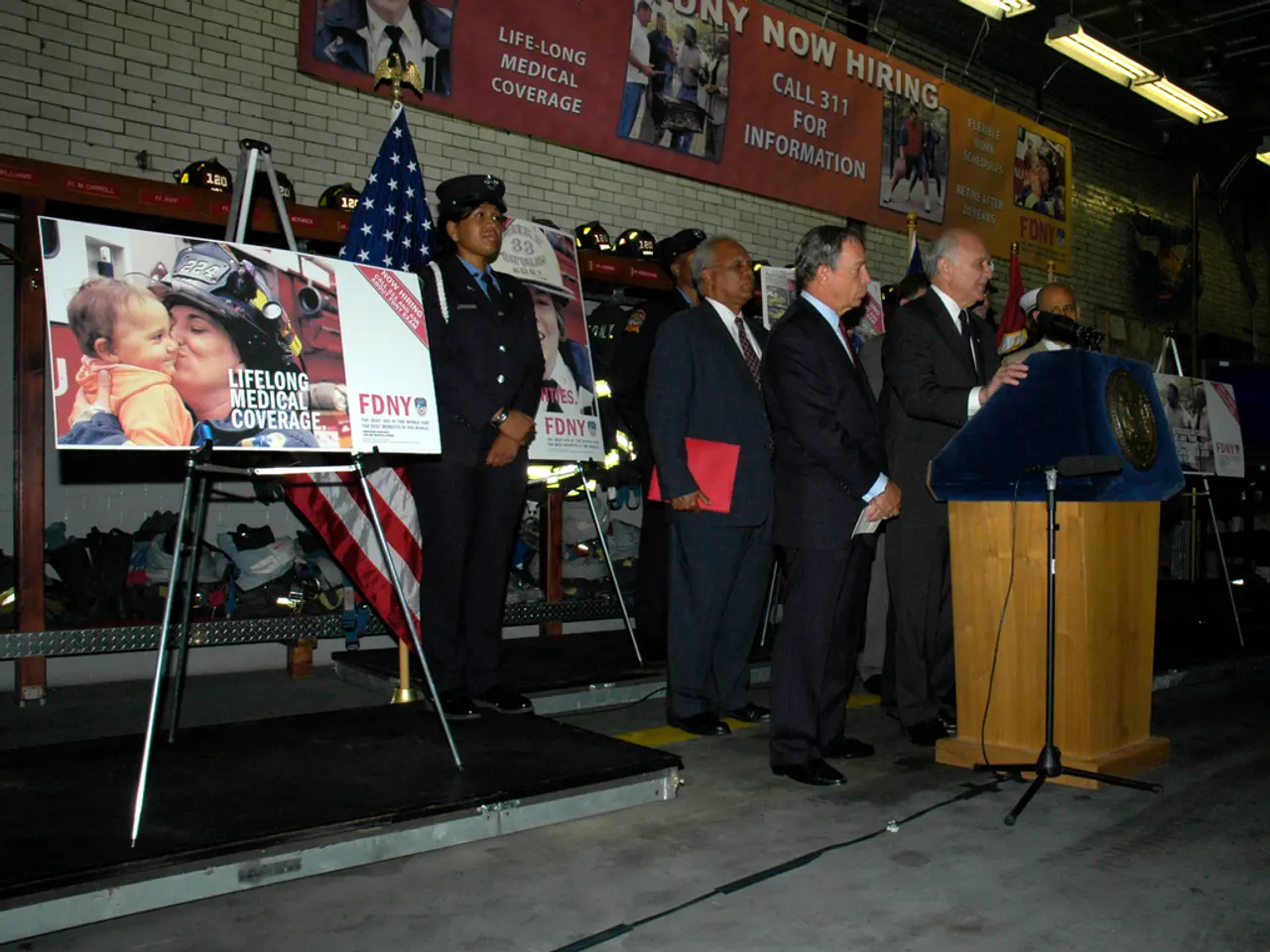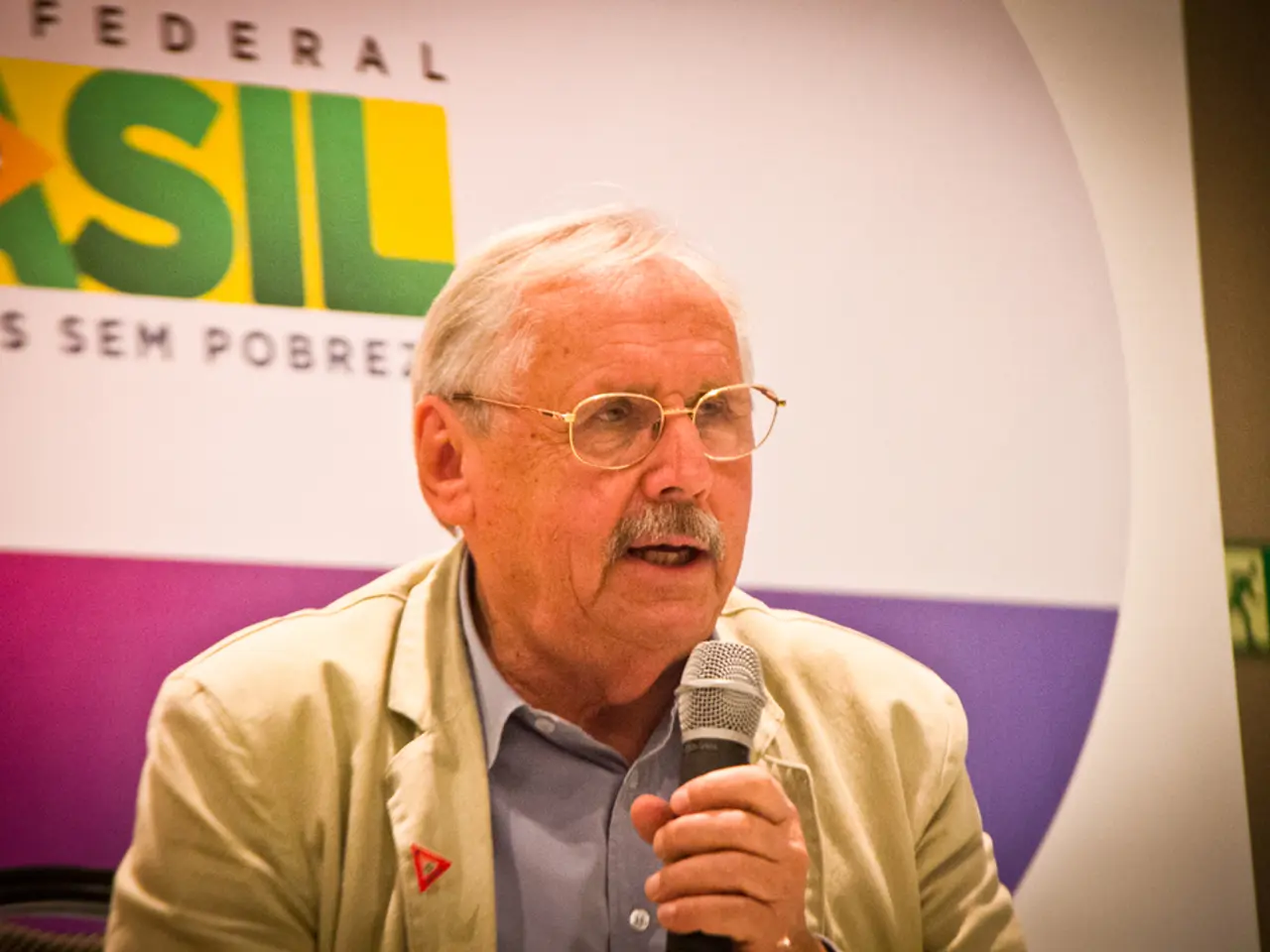Virtual Election Gathering Guide: Planning Essentials for Political Online Events
In today's digital age, political campaigns are leveraging virtual events to reach a wider audience and engage supporters who cannot attend physical rallies. Here's a guide on how to plan and execute successful political virtual events.
What is a Political Virtual Event?
A political virtual event refers to an online gathering or rally conducted over the internet. These events can include conferences, Q&A sessions, debates, and even elections. With the 2020 Presidential election upon us, it's crucial for campaigns to utilize virtual event technology to reach voters on all devices.
Planning a Political Virtual Event
To ensure a successful political virtual event, follow these key steps:
- Define Goals: Clearly outline the objectives of your event, setting a main theme to focus discussions.
- Select the Right Platform: Popular platforms for election virtual events include Zoom, YouTube Live, Facebook Live, StreamYard, and Microsoft Teams.
- Organize Speakers: Invite key figures in your campaign to speak at the event.
- Promote the Event: Start promoting your virtual event at least one to two weeks in advance to build anticipation and secure higher turnout.
- Ensure Technical Preparedness: Provide attendees with clear instructions on using videoconferencing tools, offer troubleshooting help, and remind participants about virtual meeting etiquette.
- Involve Local Supporters: Include local leaders as speakers, spotlight regional issues, and enable live participation from different geographic areas.
- Engage Audience: Use engagement tools like live chat, polls, quizzes, shoutouts, and audience questions to maintain interaction during the event.
- Assign a Moderator: A moderator guides the flow, manages time, handles Q&A, and ensures smooth transitions between speakers and segments.
- Foster Inclusivity: Respect diverse political views and backgrounds, avoid biased or culturally specific content that might alienate participants.
- Create a Positive Atmosphere: Incorporate light activities or icebreakers to engage attendees and foster connection without detracting from the political focus.
Overcoming Challenges
Hosting virtual political events comes with its own set of challenges, such as technical glitches, low engagement, digital fatigue, and limited access in areas with poor connectivity. To ensure security and authenticity, use password-protected links, encrypted platforms, pre-registered access, and moderation.
After the Event
After the virtual event, follow up with attendees by sending thank-you emails, feedback forms, highlight reels, and calls to action to deepen engagement and convert interest into votes or donations. Analyze performance using analytics tools to measure attendance, watch time, engagement rates, and conversion metrics.
Hybrid Events
For even greater reach, consider hosting hybrid events that combine in-person and virtual participation, offering flexibility and broader audience inclusion.
By following these guidelines, you can ensure your political virtual event is effective, engaging, and impactful. Don't hesitate to contact a political event planning specialist if you need help planning your next virtual event or want to find more information about services.
- Political campaigns are also using analytics tools to measure attendance, watch time, engagement rates, and conversion metrics in their virtual events, providing valuable insights for future strategies.
- Apart from leveraging popular platforms like Zoom, YouTube Live, Facebook Live, StreamYard, and Microsoft Teams, politicians are collaborating with social media influencers and general-news outlets to increase public awareness of their virtual events.
- It's essential for politicians to address a wide range of topics extending beyond politics during their virtual events, covering social media trends, local issues, and general news, appealing to a more diverse audience and garnering broader support.






